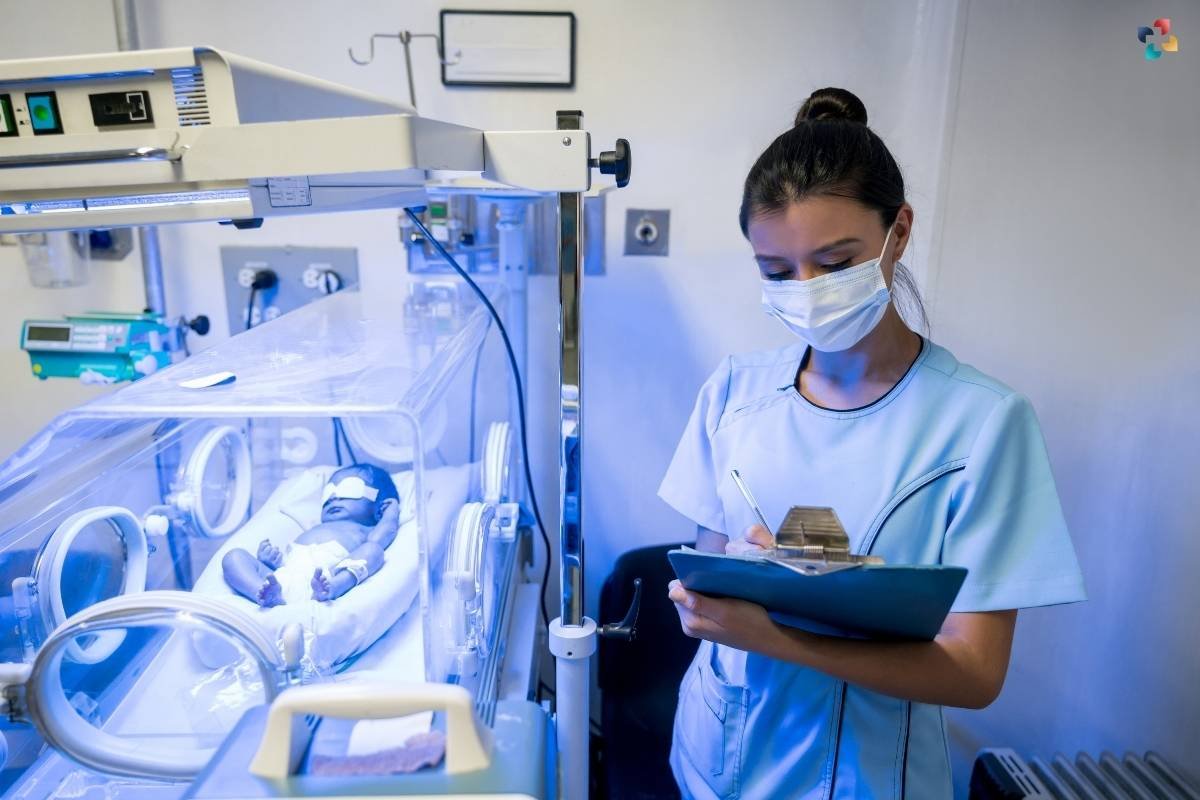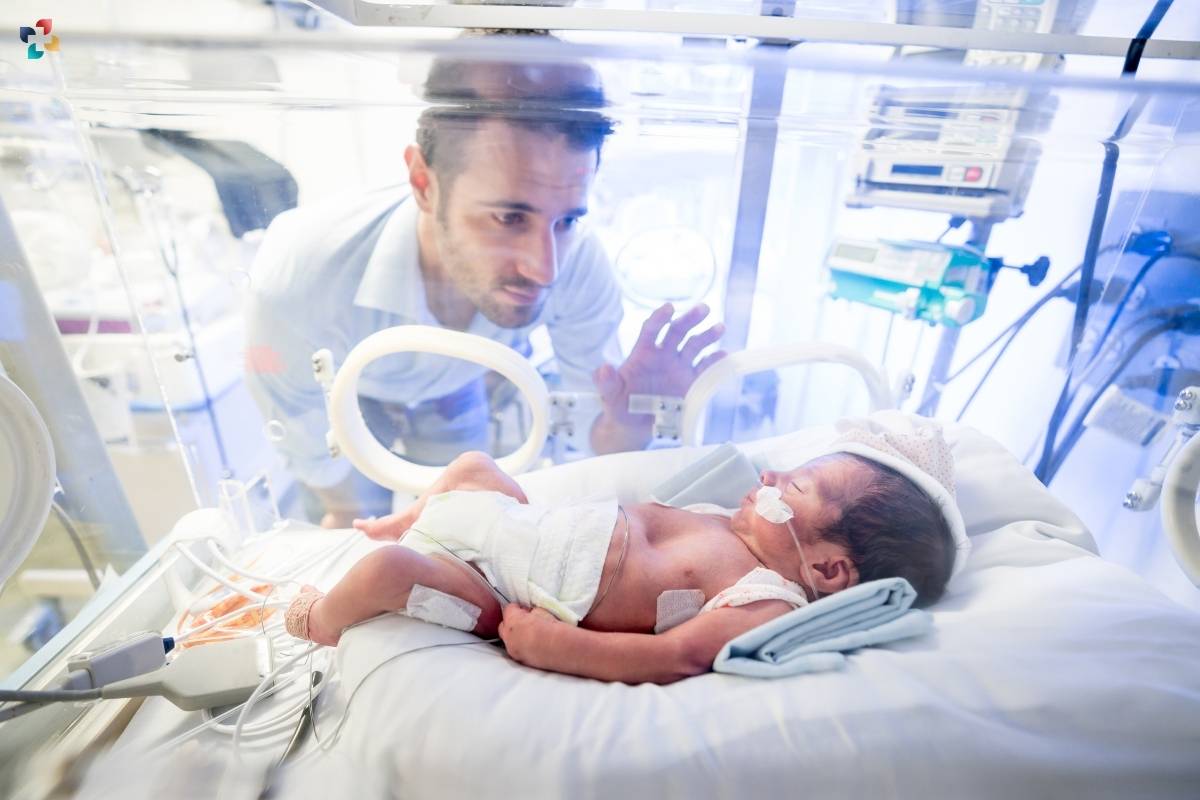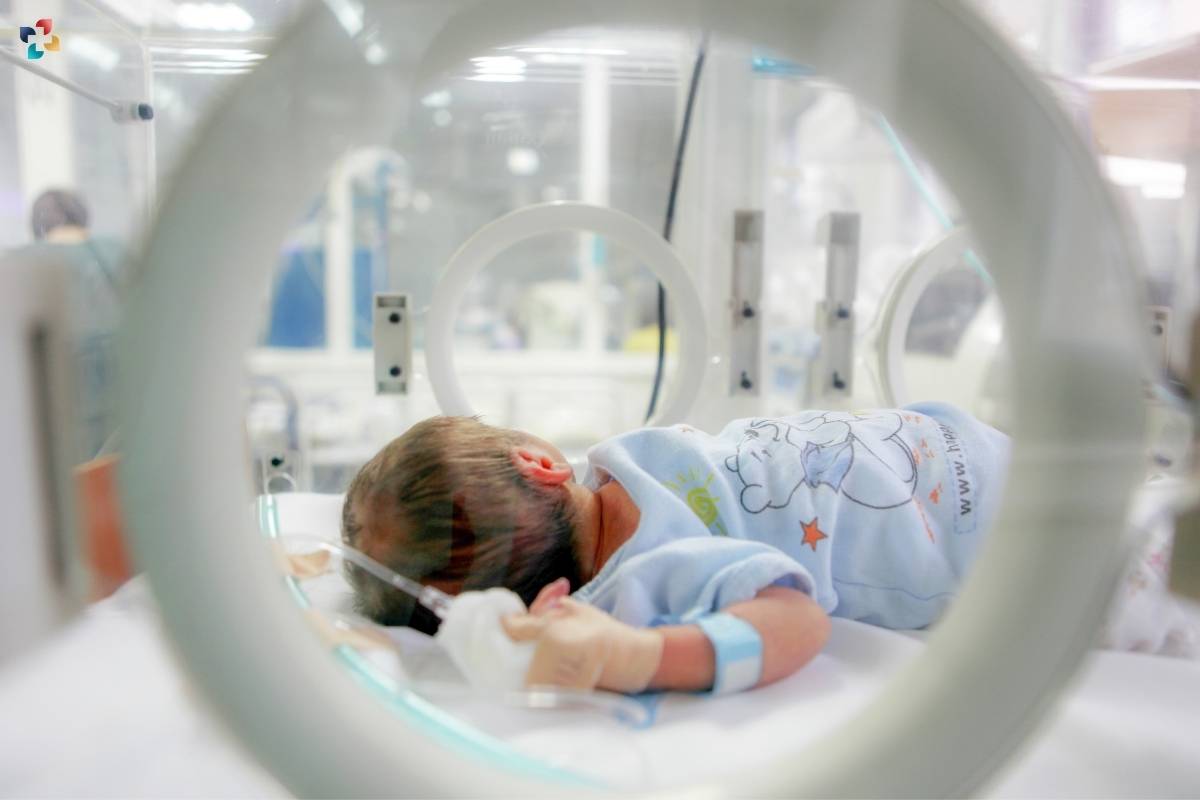While welcoming a new baby into the world is an exciting time, parents may find themselves facing difficult and painful situations if their child needs to stay in the Neonatal Intensive Care Unit (NICU). A NICU is a specialized medical facility designed to treat preterm or seriously unwell newborns with intense care. It’s critical for parents to grasp how to care for their infant in the NICU as they traverse this uncharted land and make sure they participate actively in their child’s growth and well-being.
Understanding NICU Care:
First and foremost, it’s essential to comprehend the purpose and functioning of the NICU. NICUs are staffed with specialized healthcare professionals, including neonatologists, nurses, respiratory therapists, and nutritionists, all working together to provide the highest level of care for infants facing health challenges. The NICU environment is carefully controlled to address the unique needs of premature or ill babies, including temperature regulation, infection control, and advanced medical monitoring.
Here are 9 Methods to Take Care of Your Baby in the Neonatal Intensive Care Unit:
1. Establishing a Connection with Healthcare Providers

Building a strong partnership with the healthcare team in the NICU is vital. Regular communication with neonatologists and nurses helps parents stay informed about their baby’s progress, treatment plan, and any potential challenges. Feel free to ask questions, seek clarification, and actively participate in discussions about your baby’s care. This collaboration fosters a sense of teamwork and ensures that everyone involved is on the same page regarding the infant’s well-being.
2. Bonding Despite the Environment
While the Neonatal Intensive Care Unit may seem overwhelming with its medical equipment and beeping monitors, parents can still foster a strong bond with their baby. Kangaroo care, a method involving skin-to-skin contact, is highly encouraged in the NICU. This practice not only promotes emotional closeness but also has numerous health benefits, including stabilizing the baby’s heart rate, improving sleep patterns, and enhancing weight gain. Spend time talking to, singing to, and gently touching your baby – these interactions are vital for their emotional and physical development.
3. Understanding Medical Procedures
In the NICU, medical procedures are a routine aspect of care. From blood tests to ventilator support, it’s crucial for parents to familiarize themselves with the various procedures their baby may undergo. Request explanations from healthcare providers, express any concerns and seek guidance on how to provide comfort to your baby during and after these procedures. Becoming actively involved in your baby’s care can help you feel more in control and connected.
4. Feeding and Nutrition
Nutrition plays a pivotal role in the development of infants in the NICU. Many premature or ill babies may initially be unable to feed orally, requiring alternative methods such as tube feeding. Work closely with the Neonatal Intensive Care Unit nutritionist to understand your baby’s dietary needs and explore options for providing breast milk or formula. As your baby progresses, you may have the opportunity to participate in feeding sessions and eventually transition to breastfeeding or bottle-feeding.
5. Creating a Support System

Coping with the stress of having a baby in the NICU is challenging, and it’s crucial for parents to build a robust support system. Lean on family and friends, join NICU support groups, and connect with other parents going through similar experiences. Sharing concerns, triumphs, and emotions with those who understand can be immensely comforting. Mental health is an integral part of overall well-being, and seeking support ensures that parents can navigate the emotional rollercoaster of having a baby in the NICU.
6. Taking Care of Yourself
Amidst the demands of NICU care, parents must prioritize their own well-being. Adequate rest, proper nutrition, and emotional self-care are essential. The emotional toll of having a baby in the NICU can be significant, and parents must recognize the importance of seeking professional support if needed. Mental health professionals can provide coping strategies and emotional support, ensuring parents are equipped to navigate the challenges of the NICU journey.
7. NICU Discharge and Transitioning Home
The day your baby is ready to leave the NICU is a momentous occasion. Before discharge, healthcare providers will ensure that your baby has reached certain developmental milestones and is medically stable. The transition from the NICU to home can be both exciting and daunting. Parents should actively participate in discharge planning, receive training on caring for their baby’s specific needs, administer medications if necessary, and recognize signs that may require medical attention.
8. Follow-up Care and Developmental Milestones
Post-NICU discharge, regular follow-up appointments are crucial to monitor your baby’s growth and development. These appointments may involve assessments by pediatricians, developmental specialists, and other healthcare professionals. Stay informed about your baby’s developmental milestones, and actively engage in activities that support their physical and cognitive growth. Early intervention services may be recommended to address any developmental concerns, ensuring that your baby receives the necessary support as it continues to thrive.
9. Advocacy and Awareness

As parents of a NICU graduate, you become advocates not only for your child but also for raising awareness about the challenges faced by premature and medically fragile infants. Share your NICU journey, participate in awareness campaigns, and support organizations dedicated to neonatal health. Your experience can inspire hope in others facing similar challenges and contribute to initiatives that aim to improve NICU care and support for families.
Conclusion
Resilience, empathy, and active participation are necessary for the unique and frequently difficult experience of caring for a newborn in the neonatal intensive care unit. Parental education, sensitivity, and a collaborative spirit can help them give their infant the best care possible during their stay in the Neonatal Intensive Care Unit. Every action taken to support the baby’s entire development and well-being, from building emotional bonds to actively engaging in medical decision-making, ensures a better and healthier future for the child once they leave the NICU.











